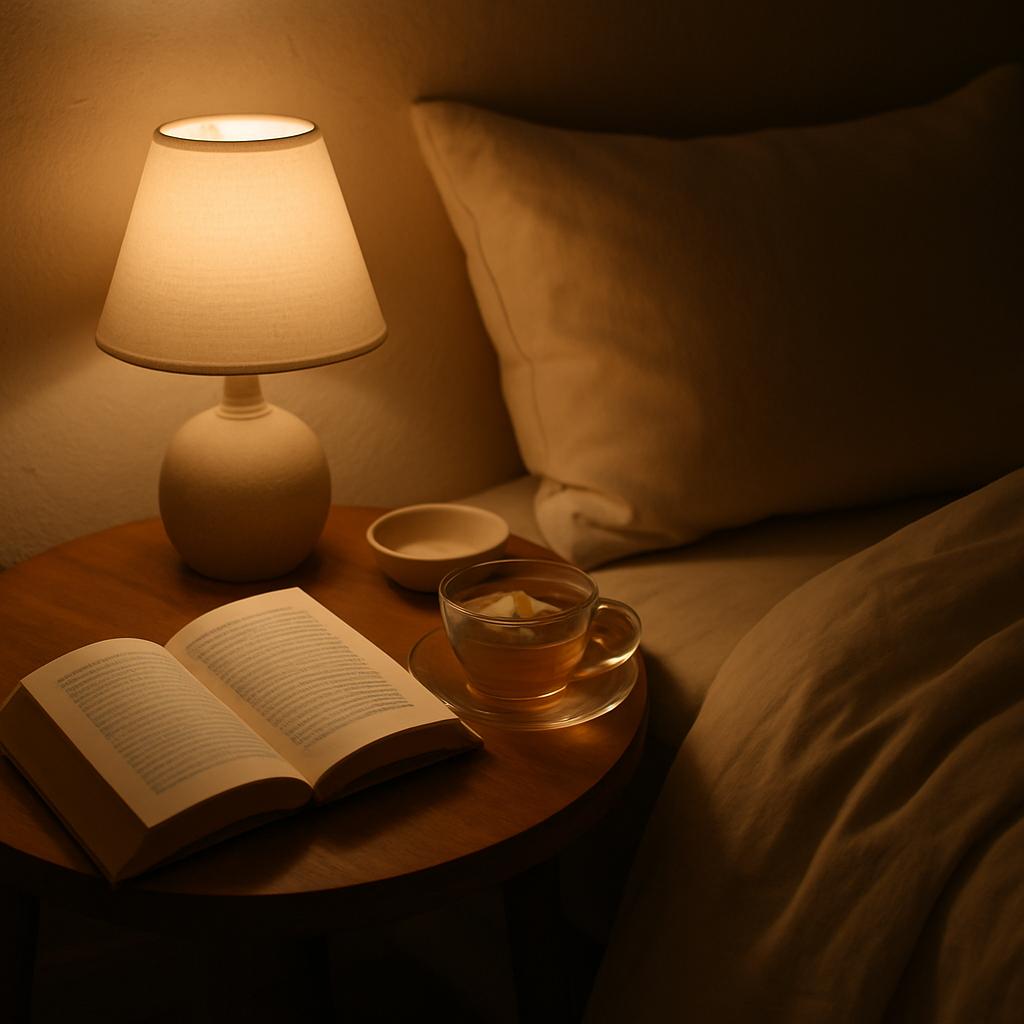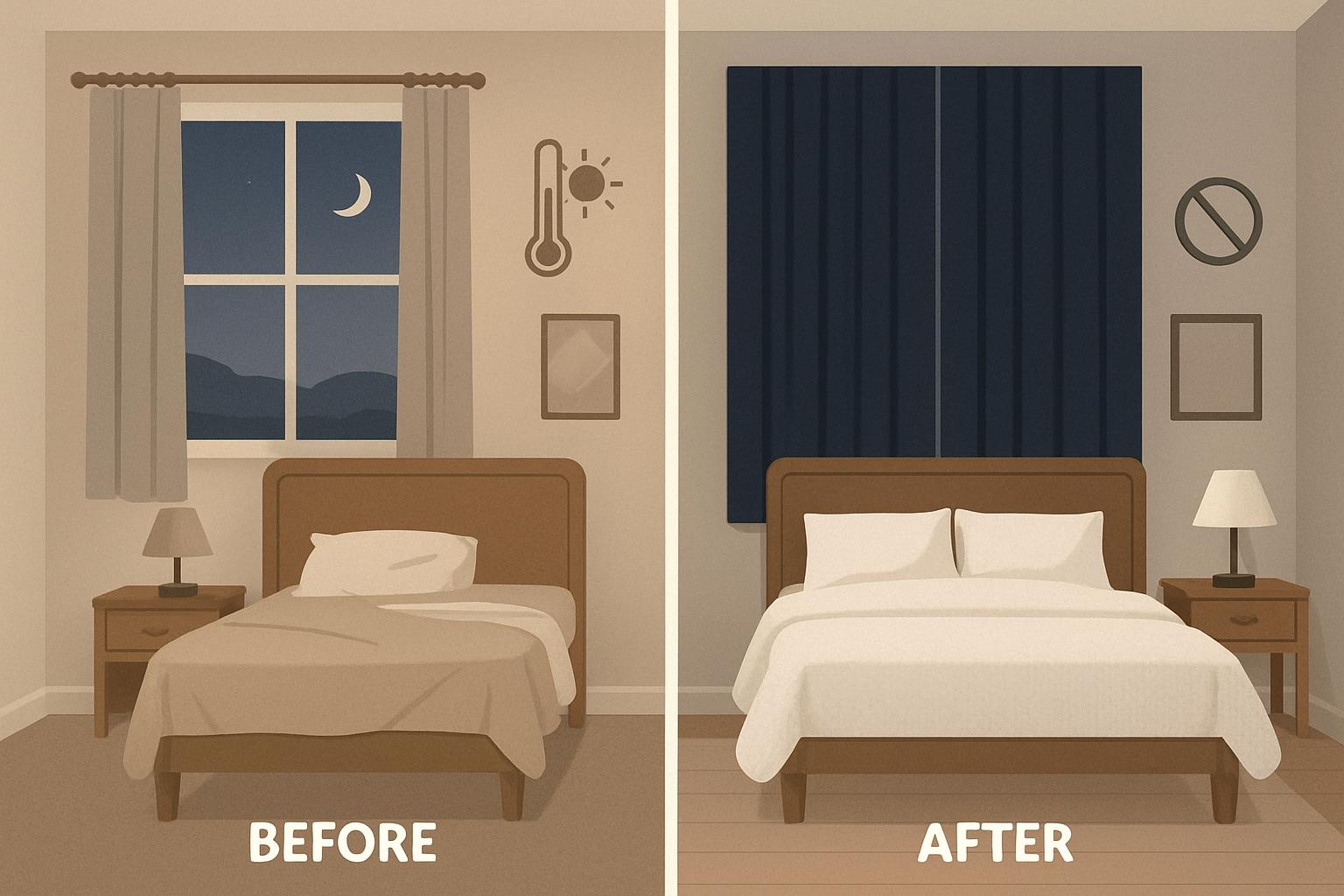
Medical Disclaimer: This article provides educational information about sleep patterns and nighttime awakenings. Always consult with healthcare professionals for proper diagnosis and treatment of medical conditions.
Understanding Consistent Nighttime Awakenings
Waking up at the same time every night is a common sleep complaint that affects millions of people. This pattern of consistent nighttime awakenings can be frustrating and exhausting, leaving you wondering why your body seems to have an internal alarm clock set for the middle of the night.
While occasional nighttime awakenings are normal, consistently waking at the same time suggests an underlying pattern or issue that can often be identified and addressed. Understanding the potential causes is the first step toward achieving more restful, uninterrupted sleep.
Normal Sleep Cycles and Brief Awakenings
To understand why you might wake at the same time each night, it's important to understand normal sleep patterns:
Sleep Cycle Basics
- 90-minute cycles: Sleep occurs in cycles lasting approximately 90 minutes
- Multiple stages: Each cycle includes light sleep, deep sleep, and REM sleep
- Natural transitions: Brief awakenings between cycles are normal
- Vulnerability periods: Some people are more likely to fully wake during transitions
When Awakenings Become Problematic
- Full consciousness: Becoming fully alert rather than briefly stirring
- Difficulty returning to sleep: Taking more than 20-30 minutes to fall back asleep
- Consistent timing: Waking at roughly the same time each night
- Daytime impact: Morning fatigue and daytime sleepiness
Sleep Science Fact: Most people naturally experience 4-6 brief awakenings per night during sleep cycle transitions. The difference between good and poor sleepers is not the number of awakenings, but how quickly they return to sleep.

Common Causes of Same-Time Awakenings
Several factors can contribute to waking up at the same time each night:
Circadian Rhythm Factors
- Internal body clock: Natural fluctuations in hormones and body temperature
- Cortisol patterns: Stress hormone fluctuations affecting sleep
- Melatonin timing: Changes in sleep hormone production
- Core body temperature: Natural dips that can trigger awakening
Environmental Triggers
- External noises: Consistent sounds at the same time (traffic, neighbors, heating systems)
- Light exposure: Street lights, electronic devices, or early morning light
- Temperature changes: Room heating or cooling cycles
- Partner movements: Spouse or pet movements at predictable times
Physical and Medical Factors
- Bathroom needs: Natural bladder filling patterns
- Medication timing: Wearing off of sleep medications or side effects
- Pain conditions: Chronic pain that worsens at certain times
- Hormonal changes: Menopause, pregnancy, or thyroid issues
- Sleep disorders: Sleep apnea, restless leg syndrome, or periodic limb movements
Pattern Recognition: Keeping a sleep diary for 2-3 weeks can help identify triggers for same-time awakenings. Track your awakening time, environmental factors, stress levels, and evening activities to discover patterns.
Psychological and Stress-Related Causes
Mental and emotional factors often play a significant role in nighttime awakenings:
Anxiety and Worry
- Racing thoughts: Mind becoming active during lighter sleep phases
- Anticipatory anxiety: Worrying about waking up can become self-fulfilling
- Work stress: Job-related concerns surfacing during sleep
- Life transitions: Major changes creating underlying tension
Learned Patterns
- Conditioned response: Body learning to wake at specific times
- Habit formation: Repeated patterns becoming automatic
- Sleep anxiety: Fear of not sleeping well creating sleep problems
- Clock watching: Checking time reinforcing the awakening pattern
Age-Related Factors
Sleep patterns naturally change with age, often leading to more nighttime awakenings:
Aging and Sleep Architecture
- Lighter sleep: Less deep sleep as we age
- Earlier bedtimes: Natural shift toward going to bed and waking earlier
- More frequent awakenings: Normal part of aging process
- Shorter sleep cycles: Changes in sleep cycle length and structure
Health Conditions Common with Age
- Increased frequency of bathroom visits
- Arthritis or joint pain affecting comfort
- Medications with sleep-affecting side effects
- Sleep disorders becoming more common
Lifestyle Factors Contributing to Nighttime Awakenings
Daily habits and lifestyle choices can significantly impact nighttime sleep continuity:
Diet and Eating Patterns
- Late-night eating: Digestion processes affecting sleep
- Caffeine timing: Stimulants consumed too late in the day
- Alcohol consumption: Initial sedation followed by rebound awakening
- Blood sugar fluctuations: Drops in blood glucose triggering awakening
- Fluid intake: Drinking too much before bed leading to bathroom trips
Exercise and Activity Patterns
- Exercise timing: Vigorous activity too close to bedtime
- Sedentary lifestyle: Lack of physical activity affecting sleep quality
- Irregular schedules: Inconsistent daily routines disrupting circadian rhythms
Identifying Your Specific Triggers
To address same-time awakenings, you need to identify your specific triggers:
Sleep Diary Tracking
- Awakening times: Record exact times you wake up
- Environmental factors: Note temperature, noise, light levels
- Pre-sleep activities: What you did in the hours before bed
- Emotional state: Stress levels, mood, and worries
- Physical factors: Pain, discomfort, or bodily needs
Pattern Recognition
- Consistency: How regularly the awakening occurs
- Seasonal variations: Changes with weather or daylight patterns
- Correlation with events: Connection to stressful periods or life changes
- Weekend vs. weekday differences: Variations in sleep patterns
Strategies to Prevent Same-Time Awakenings
Once you've identified potential causes, several strategies can help break the pattern:
Sleep Environment Optimization
- Noise control: Use white noise machines or earplugs
- Light management: Blackout curtains and remove electronic light sources
- Temperature regulation: Keep room cool and consistent
- Comfortable bedding: Ensure mattress and pillows support good sleep
Lifestyle Modifications
- Consistent sleep schedule: Go to bed and wake up at the same time daily
- Evening routine: Develop calming pre-sleep activities
- Caffeine cutoff: Avoid caffeine after 2 PM
- Alcohol moderation: Limit alcohol, especially in evening hours
- Exercise timing: Finish vigorous exercise at least 3 hours before bed
Success Strategy: If you wake at the same time nightly, avoid checking the clock. Instead, practice relaxation techniques and trust that your body will return to sleep naturally. Clock-watching often increases anxiety and reinforces the awakening pattern.
Cognitive and Behavioral Strategies
Mental techniques can be particularly effective for stress-related awakenings:
Relaxation Techniques
- Progressive muscle relaxation: Systematically tense and release muscle groups
- Deep breathing exercises: Slow, controlled breathing to promote calm
- Mindfulness meditation: Focus on present moment awareness
- Visualization: Imagine peaceful, calming scenes
Cognitive Strategies
- Worry time: Designate specific time earlier in day for concerns
- Thought stopping: Techniques to interrupt racing thoughts
- Reframing: Change negative thoughts about sleep and awakenings
- Acceptance: Reduce anxiety about occasional awakenings
What to Do When You Wake Up
How you respond to nighttime awakenings can affect whether you fall back asleep:
Immediate Response Strategies
- Stay in bed: Don't get up unless you need to use the bathroom
- Avoid checking time: Looking at the clock can increase anxiety
- Keep lights dim: Use minimal lighting if you must get up
- Practice relaxation: Use breathing or muscle relaxation techniques
The 20-Minute Rule
- If you can't fall back asleep within 20 minutes, get up
- Go to another room and do a quiet, non-stimulating activity
- Return to bed when you feel sleepy again
- Avoid screens, bright lights, or stimulating activities
When to Seek Professional Help
Consider consulting a healthcare provider if:
Persistent Problems
- Same-time awakenings continue for more than 3-4 weeks
- Daytime functioning is significantly impaired
- You experience excessive daytime sleepiness
- Self-help strategies haven't been effective
Additional Concerning Symptoms
- Gasping, choking, or breathing difficulties during sleep
- Loud snoring or observed breathing pauses
- Restless leg sensations or involuntary movements
- Persistent pain or physical discomfort
- Symptoms of depression or anxiety
Professional Treatment Options
Healthcare providers can offer various treatments for persistent sleep problems:
Sleep Medicine Evaluation
- Comprehensive sleep history and physical examination
- Sleep study testing if sleep disorders are suspected
- Evaluation of medications and medical conditions
- Assessment of mental health factors
Treatment Approaches
- Cognitive Behavioral Therapy for Insomnia (CBT-I): Evidence-based treatment for sleep problems
- Sleep medications: Short-term use for specific situations
- Treatment of underlying conditions: Addressing medical or psychiatric causes
- Sleep hygiene education: Professional guidance on sleep practices
Long-term Success Strategies
Breaking the pattern of same-time awakenings often requires patience and consistency:
Gradual Improvement
- Expect gradual rather than immediate improvement
- Be consistent with sleep hygiene practices
- Track progress with a sleep diary
- Adjust strategies based on what works best for you
Maintenance Strategies
- Continue good sleep habits even after improvement
- Address new stressors or life changes promptly
- Regular exercise and stress management
- Periodic review of sleep environment and habits
Conclusion
Waking up at the same time every night can be frustrating, but it's often a solvable problem. By understanding the potential causes—whether they're environmental, physical, psychological, or lifestyle-related—you can develop targeted strategies to address your specific situation.
Start with simple changes like optimizing your sleep environment and practicing good sleep hygiene. If the problem persists, don't hesitate to seek professional help. With the right approach and patience, you can break the cycle of nighttime awakenings and enjoy more restful, uninterrupted sleep.
Remember that occasional awakenings are normal, and the goal isn't perfect sleep but rather sleep that allows you to feel rested and function well during the day. Focus on overall sleep quality rather than perfection, and be patient as you work toward better sleep patterns.
← Back to Sleep Topics